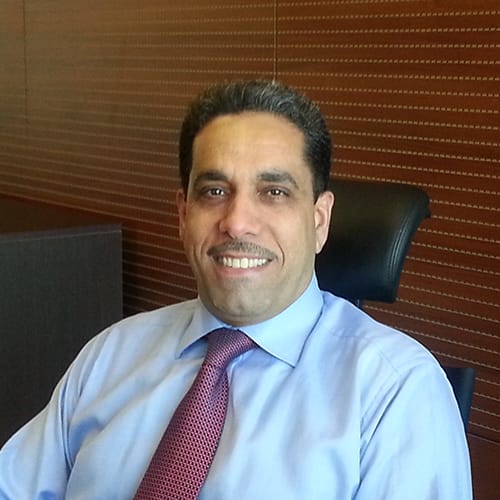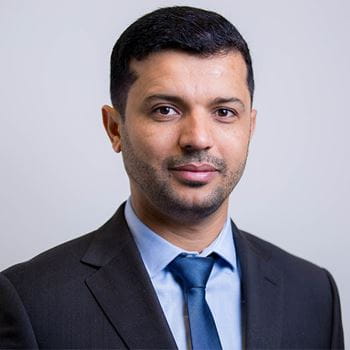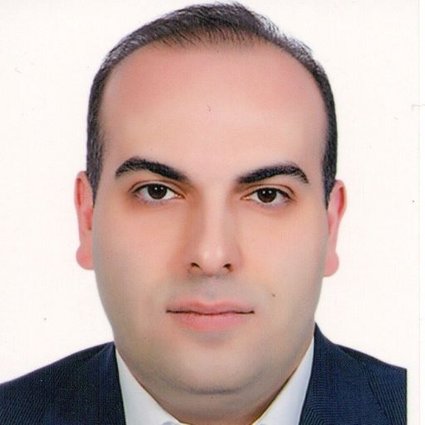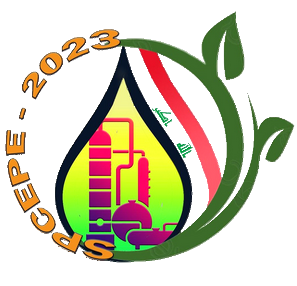Conference Goal
_
Iraq is one of the world’s largest crude oil producers, with proven reserves estimated at around 150 billion barrels. Crude oil production is a crucial component of the country’s energy mix and a significant source of export revenue and domestic energy supply. The great importance of the oil industry in Iraq has been reflected in some of the requirements and challenges facing this industry in the country. Some of these requirements include extraction, refining, and environmental pollution for various types of oil production. Plus, maintain the sustainability of this industry. Therefore, it was necessary to focus on research of petroleum, petrochemical, and chemical, and develop techniques for treating different petroleum pollutants with adverse environmental effects, As well as research in the fields of alternative energy.
SPCEPE-2023 conference aims to provide a platform for researchers, academics, and industry professionals to discuss and exchange ideas on the latest developments in sustainability perspectives in the fields of applied engineering sciences and to exchange experiences in the fields of chemical, petroleum, and environmental engineering. The SPCEPE-2023 conference will promote the adoption of sustainable practices and technologies and seek to foster collaboration between researchers, engineers, and industry professionals to promote sustainable development.
Conference Topics
_
Chemical engineering processes
The gas exploration, production, and distribution processes
Petroleum and petrochemical industries
Environmental Engineering and renewable energy
Material Science and Engineering
The subsurface and surface oil processes
Sustainable development
Keynote Speakers
_

Prof. Dr. Adel SharifUniversity of Surrey – UK

Prof. Dr. Khalid HashimLiverpool John Moores University – UK

Farbod FarziUniversity de Sherbrooke – Canada
Conference Secretary Committee
_
- Asst. Prof. Dr. Sama M. Al-Jubouri, Chemical Eng. Dept. – COE - University of Baghdad – Iraq.
- Dr. Miqat Hasan Salih, Chemical Eng. Dept. – COE - University of Baghdad – Iraq.
International Consultants Committee
_
- Prof. Dr. Armando Rojas VargasUniversity de Holguín – Cuba
- Prof. Dr. Mostafa RahimnejadBabol Noshirvani University of Technology – Iran
- Prof. Dr. Adel SharifUniversity of Surrey – UK
- Asst. Prof. Dr. Shaikh Manirul HaqueJubail Industrial College - Kingdom of Saudi Arabia
- Asst. Prof. Dr. Salam Kadhim Al-DaweryUniversity of Nizwa - Sultanate of Oman
- Asst. Prof. Dr. Sirhan AlbattyJubail Industrial College - Kingdom of Saudi Arabia
- Asst. Prof. Dr. Hind Faisal Ahmad BarghashGerman University of Technology – Sultanate of Oman
- Asst. Prof. Dr. Nageswara Rao LakkimsettyNational University of Science and Technology – Sultanate of Oman
Local Consultants Committee
_
- Prof. Dr. Munir Hamid Al-SaadiPresident of the University of Baghdad
- Prof. Dr. Abdul Mun’em Abbas KarimPresident of the University of Diyala
- Prof. Dr. Mohammed Hliyil HafizPresident of the Basrah University for oil & Gas
- Prof. Dr. Basim K. NilePresident of the University of Kerbala
- Prof. Dr. Saba Jabbar NeamahDean of the College of Engineering – University of Baghdad
- Prof. Dr. Wadood Taher MohammedDean of the Al-khwarizmi College of Engineering – University of Baghdad
- Prof. Dr. Mohammed s. AljawadPetroleum Engineering Department – University of Baghdad
- Prof. Dr. Fadhil S. kadhimHead of Petroleum Technology Department – University of Technology
- Asst. Prof. Dr. Jasim Mohammed SalmanDean of the Petroleum Engineering College – Al- AYEN University
- Asst. Prof. Dawood Eisa SachitHead of Environmental Engineering Department – Mustansiriyah University
Scientific Committee
_
- Prof. Dr. Basma Abbas AbdulmajeedChemical Engineering Department – University of Baghdad
- Prof. Dr. Zainab Ziad IsmailEnvironmental Engineering Department – University of Baghdad
- Prof. Dr. Ayad FaesalHead of Environmental Engineering Department – University of Baghdad
- Prof. Dr. Khalid HashimLiverpool John Moores University – UK
- Prof. Dr. Mohammad SharifiAmirkabir University of Technology – Iran
- Prof. Dr. Ammar S. AbbasChemical Engineering Department – University of Baghdad
- Prof. Dr. Shahlaa Esmail EbrahimEnvironmental Engineering Department – University of Baghdad
- Prof. Dr. Ayad A. Alhaleem A. AlrazzaqPetroleum Engineering Department – University of Baghdad
- Prof. Dr. Khalid A. SukkarChemical Engineering Department – University of Technology
- Prof. Dr. Ali H. AbbarAl-khwarizmi College of Engineering – University of Baghdad
- Prof. Dr. Amer Ali GhabraHead of Petroleum Engineering Department - Al-Amarah University College
- Asst. Prof. Dr. Abdullatif AlfutimieUniversity of Manchester – UK
- Asst. Prof. Dr. Hussein Rasool AbidEdith Cowan University - Australia
- Asst. Prof. Dr. Prashant Basavaraj BhagawatiCollege of Engineering and Technology – India
- Asst. Prof. Dr. Raghad F. AlmillyChemical Engineering Department – University of Baghdad
- Asst. Prof. Dr. Mahmood K. HummadiChemical Engineering Department – University of Baghdad
- Asst. Prof. Dr. Sarmad Talib NajimChemical Engineering Department – Al-Nahrain University
- Asst. Prof. Dr. Forat Yasir AlJaberiChemical Engineering Department – Al-Muthanna University
- Asst. Prof. Dr. Omar Falih HasanPetroleum Engineering Department – University of Baghdad
Organizing Committee
_
- Prof. Dr. Ahmed Faiq Al-AlawyHead of Chemical Engineering Department – University of Baghdad
- Assist. Prof. Dheyaa Jasim KadhimAssistant Dean of Scientific Affairs and Postgraduate
- Dr. Ghanim M. FarmanHead of Petroleum Engineering Department – University of Baghdad
- Prof. Dr. Faleh H. M. AlmehdawiPetroleum Engineering Department – University of Baghdad
- Prof. Dr. Abeer I AlwaredEnvironmental Engineering Department – University of Baghdad
- Asst. Prof. Dr. Ziad Tark Abd Ali Environmental Engineering Department – University of Baghdad
- Asst. Prof. Dr. Haider A. Al-JendeelChemical Engineering Department – University of Baghdad
- Asst. Prof. Dr. Sama M. Al-JubouriChemical Engineering Department – University of Baghdad
- Asst. Prof. Dr. Rasha H. SalmanChemical Engineering Department – University of Baghdad
- Asst. Prof. Dr. Basma I. WaisiChemical Engineering Department – University of Baghdad
- Asst. Prof. Dr. Atheer M. Al-yaqoobiChemical Engineering Department – University of Baghdad
- Asst. Prof. Dr. Rana Th. Abd AlrubayeChemical Engineering Department – University of Baghdad
- Asst. Prof. Dr. Tariq M. NaifeChemical Engineering Department – University of Baghdad
- Dr. Miqat Hasan SalihChemical Engineering Department – University of Baghdad
- Dr. Omar Sabbar DahhamChemical Engineering Department – University of Baghdad
- Asst. Lecturer Furat Nidhal TawfeeqWebsite Division – University of Baghdad
Sustainability Perspective in Chemical, Environmental, and Petroleum Engineering
_
Chemical Engineering Perspective
Chemical Engineering provides industry and government agencies with competent and socially responsible engineers who are critical in driving human excellence and developing equitable engineering solutions.
The aims are developing innovative technological solutions to overcome complex, critical scientific issues and technological problems through catalysis and reactions, advanced materials and polymers, energy production processes, simulation and computational modeling, fabrication, and applications of membranes, nanotechnology, purification technologies, and others.
To contribute to sustainability, chemical engineering needs to develop chemical products and processes that meet the needs of present and future generations. The items relating to sustainability are alternate energy sources (like solar and wind), alternate feedstock for energy, alternate raw materials, green processes with minimal environmental impact, recycling, quality water, food, and medicines, reducing waste and shipping weight by concentrating products without sacrificing quality or stability, optimizing a process to be more economical, environmentally friendly, and energy-efficient, improving carbon capture and storage and water treatment technologies, replacing petroleum-based products such as plastics with plant-based materials that perform as well or better.
Environmental Engineering, Sustainability, and Science
Environment and Sustainability Engineering is the type of engineering that seeks to undo past damage to the planet and work with the natural environment to create a better future for humanity. Sustainability addresses the capacity of society to improve quality of life while preserving the availability and quality of its natural resources. As the world’s population increases under the effects of climate change, engineers face new and evolving challenges with sustainability and the health of our natural and built environment.
The aims are to meet emergent and dynamic challenges of environmental stewardship and sustainability, and focuses on:
-
Water Resources Engineering, Science, and Sustainability.
-
Water Treatment.
-
Climate Change Adaptation, Energy Systems Analysis and Sustainability.
-
Systems Modeling and Optimization (Water, Climate, Automation).
-
Nanotechnology and Biotechnology
-
Remediation Engineering.
-
Air Pollution Engineering, Science, and Modeling.
-
Sustainable Materials and Computational Performance Modeling.
Sustainability and the Role of Petroleum Engineering
Petroleum engineering is a field of engineering concerned with the activities related to the production of Hydrocarbons, which can be either crude oil or natural gas. Petroleum has played a vital role in the advancement of modern industrial society and has extended benefits to unprecedented (and growing) numbers of people.
The term sustainability has often been narrowed to refer to the mere longevity of an organization, group, or profits. Likewise, this term has somehow pitted the valued petroleum resource against what are still speculative technologies (i.e. the alternatives) rather than addressing how we must judiciously use petroleum now to benefit our future.
Environmental problems demand greater attention. Petroleum engineers need to be at the center of the debate and planning:
-
Maximizing the value of increasingly precious oil and natural gas production, while mitigating environmental impacts, and seeking ways to optimize the use of petroleum.
-
Supporting local development of petroleum energy sources in developing countries.
-
Finding ways to extend the use of oil and gas, while supporting the market entry of new energy sources through creatively hybridized systems.
Venue
_


